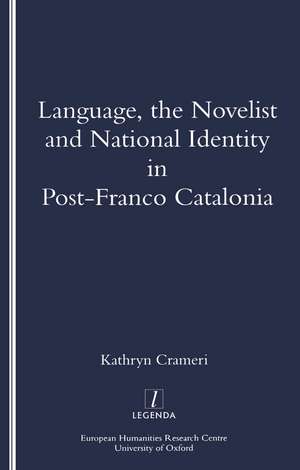Language, the Novelist and National Identity in Post-Franco Catalonia
Autor Kathryn Cramerien Limba Engleză Paperback – dec 2000
Preț: 368.57 lei
Preț vechi: 476.26 lei
-23% Nou
Puncte Express: 553
Preț estimativ în valută:
70.53€ • 75.42$ • 58.80£
70.53€ • 75.42$ • 58.80£
Comandă specială
Livrare economică 28 martie-11 aprilie
Doresc să fiu notificat când acest titlu va fi disponibil:
Se trimite...
Preluare comenzi: 021 569.72.76
Specificații
ISBN-13: 9781900755375
ISBN-10: 1900755378
Pagini: 220
Dimensiuni: 145 x 216 x 15 mm
Greutate: 0.36 kg
Ediția:1
Editura: Taylor & Francis
Colecția Routledge
Locul publicării:Oxford, United Kingdom
ISBN-10: 1900755378
Pagini: 220
Dimensiuni: 145 x 216 x 15 mm
Greutate: 0.36 kg
Ediția:1
Editura: Taylor & Francis
Colecția Routledge
Locul publicării:Oxford, United Kingdom
Cuprins
Introduction; 1: Catalanisme Literari; 2: Catalonia during the Transition; 3: The Politicization of Literary Issues 1970—1990; 4: Manuel de Pedrolo: Tales of the Mother Country; 5: Biel Mesquida: The Act of Expression as a Force for Decolonization; 6: Montserrat Roig and Juan Marsé: Storytelling and the Collective Memory; 7: Epilogue: El amante bilingüe; Conclusion
Descriere
Kathryn Crameri reveals some of the complex responses of writers and literary critics to the new possibilities for the expression of Catalan identities which resulted from Spain's transition from dictatorship to democracy.
